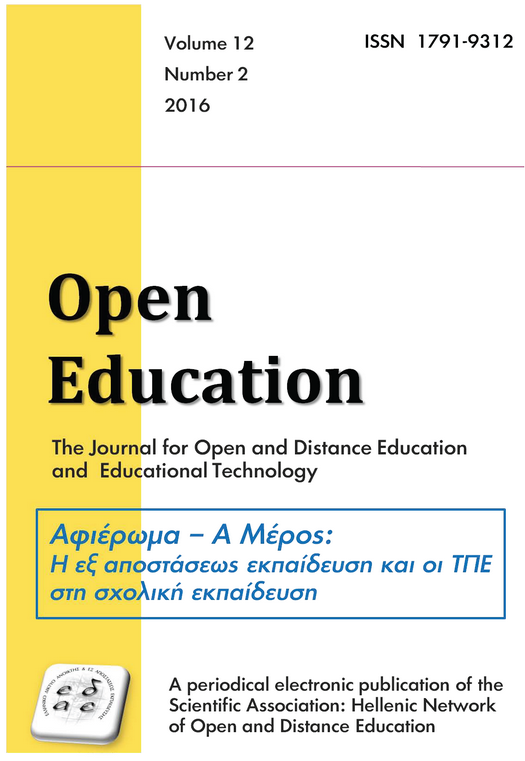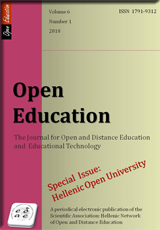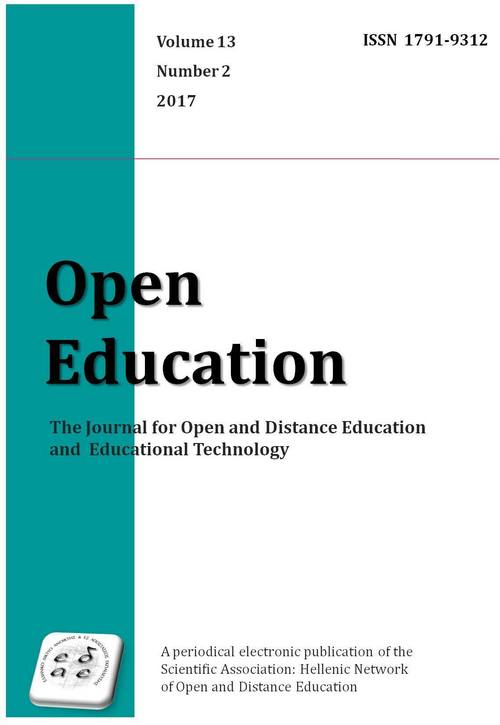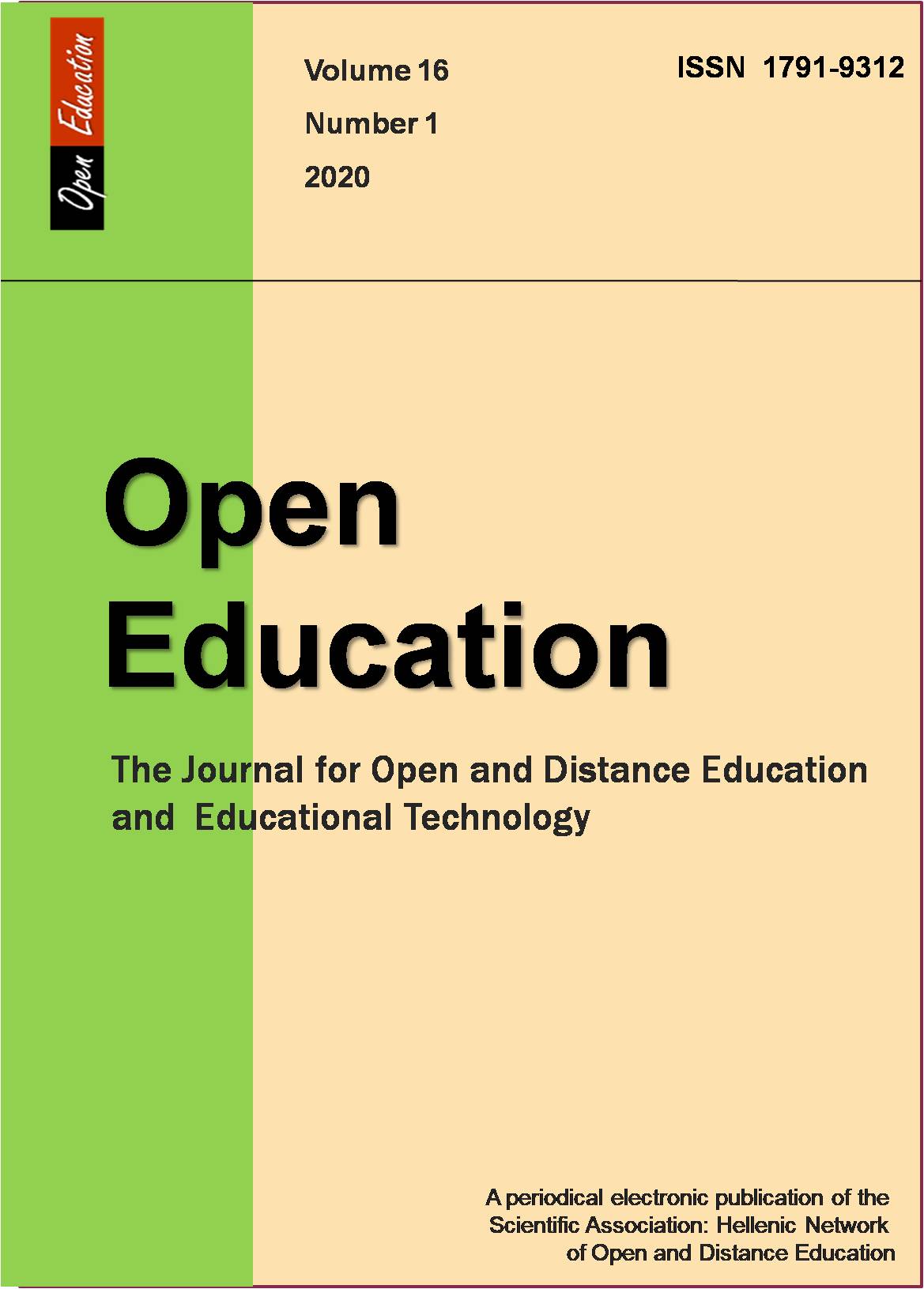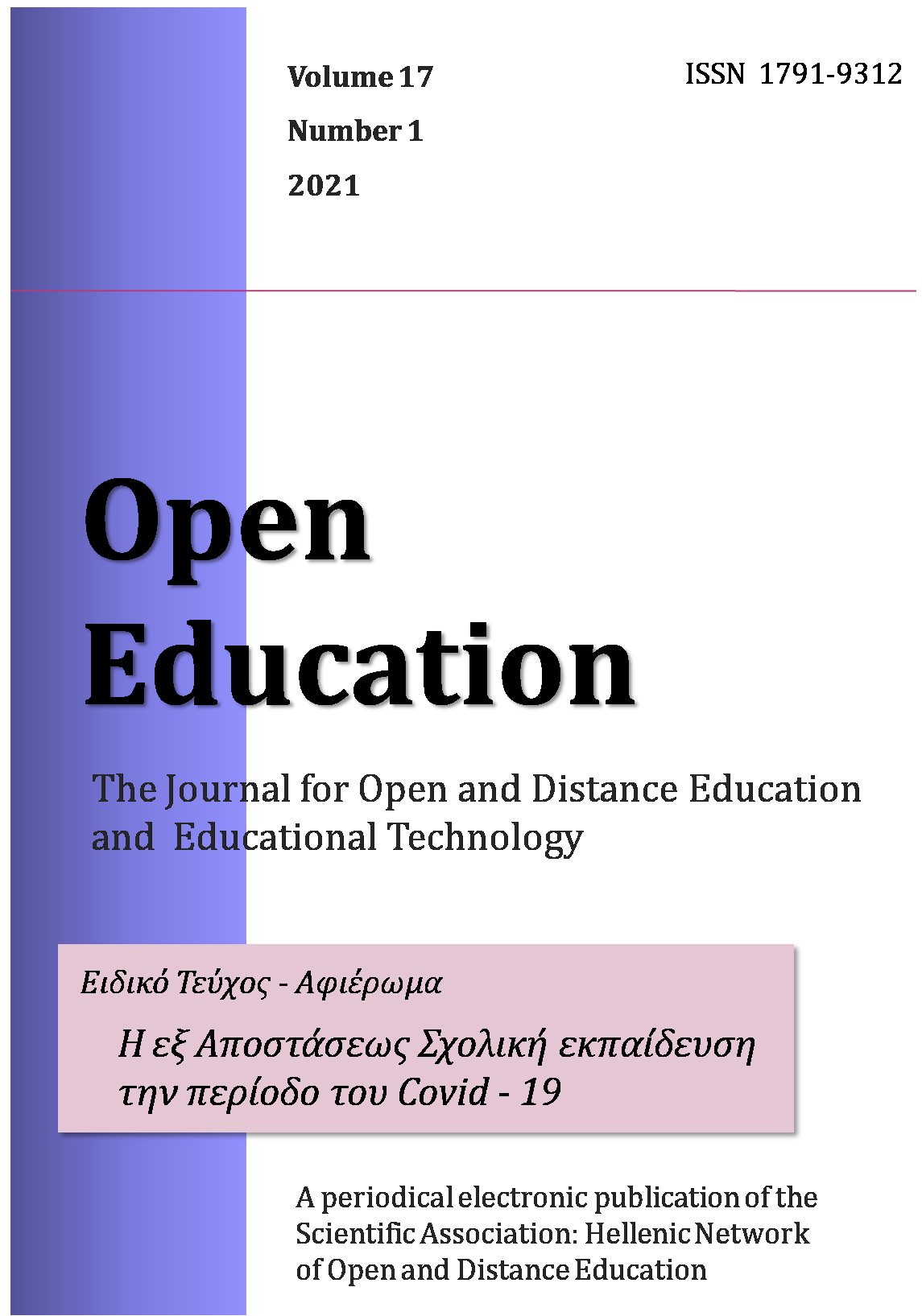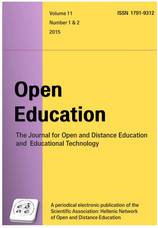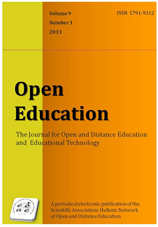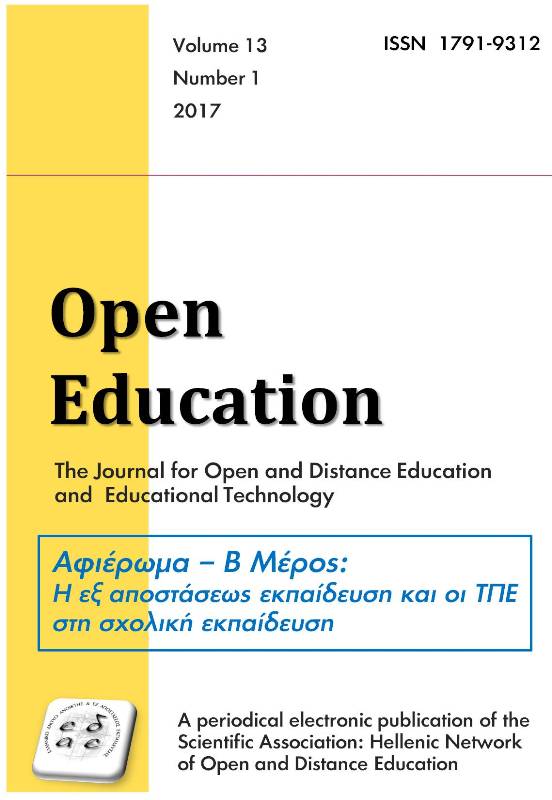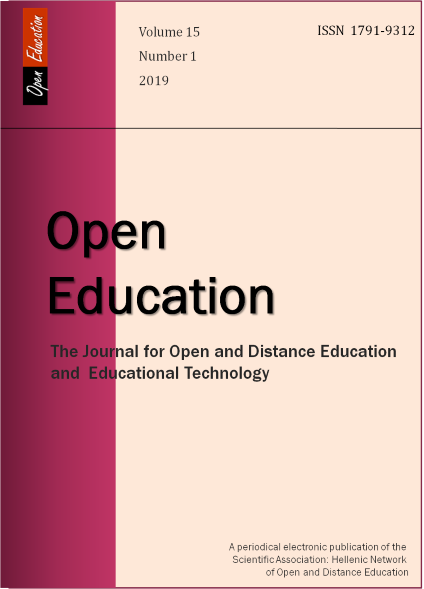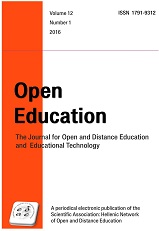Διερεύνηση συμπληρωματικής εξ αποστάσεως εκπαίδευσης στο πλαίσιο ενισχυτικής διδασκαλίας μαθηματικών με την αξιοποίηση εκπαιδευτικού λογισμικού
Abstract
Σκοπός του παρόντος άρθρου είναι η διερεύνηση συμπληρωματικής εξ Αποστάσεως εκπαίδευσης στο πλαίσιο ενισχυτικής διδασκαλίας των Μαθηματικών αξιοποιώντας εκπαιδευτικό λογισμικό, μέσω της πλατφόρμας Ηλεκτρονική Σχολική Τάξη (η-τάξη) του Πανελλήνιου Σχολικού Δικτύου (ΠΣΔ) και του εκπαιδευτικού παιχνιδιού μαθηματικών Volcanic Riddles. Για την εκπλήρωση του σκοπού πραγματοποιήθηκε εξ αποστάσεως παρέμβαση σε ηλεκτρονικό περιβάλλον, συμπληρωματικά με το σχολείο, σε ένα Γυμνάσιο του νομού Χαλκιδικής. Διερευνήθηκαν παράγοντες όπως οι αντιδράσεις (στάσεις) των μαθητών απέναντι στα μαθηματικά κατά την υποστήριξη της διδασκαλίας στο εξ αποστάσεως ηλεκτρονικό περιβάλλον, η επίδραση της η-τάξης και του παιχνιδιού στη στάση αυτή, η στάση απέναντι στην η-τάξη, το παιχνίδι και την εξ αποστάσεως εκπαίδευση (εξΑΕ). Όλοι μαθητές απάντησαν σε ερωτηματολόγια στάσεων πριν και μετά την παρέμβαση. Επιπλέον, οι μαθητές που μετείχαν στην η-τάξη και στο παιχνίδι απάντησαν μετά την παρέμβαση σε ερωτηματολόγιο που αφορούσε την παρουσίαση μαθηματικών εννοιών και την εξΑΕ. Ακόμη, οι μαθητές που δεν συμμετείχαν σε κάποια επιπλέον μαθησιακή δραστηριότητα πέραν της παραδοσιακής διδασκαλίας στην τάξη συμπλήρωσαν ερωτηματολόγιο σε σχέση με την εξΑΕ και τους παράγοντες που εμποδίζουν την υλοποίησή της. Σύμφωνα με τα κύρια αποτελέσματα της εργασίας οι στάσεις των μαθητών διαφοροποιήθηκαν μετά την παρέμβαση. Οι εξΑ δραστηριότητες βοήθησαν
στην κατανόηση των εννοιών, ενώ αύξησαν την επιθυμία τους να παρακολουθήσουν εξΑ μαθήματα.
Article Details
- Come citare
-
- Fascicolo
- V. 12 N. 2 (2016)
- Sezione
- Μέρος πρώτο / Section 1

